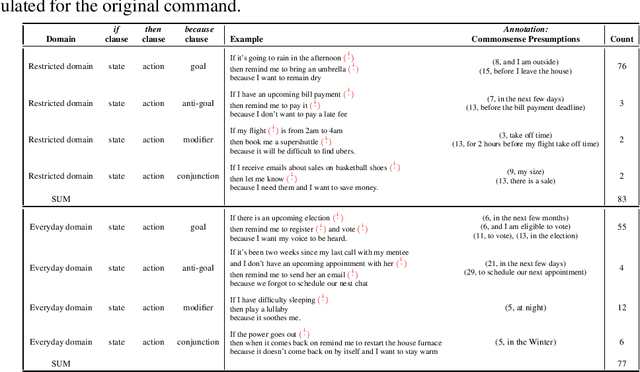Mikayla Gawarecki
Conversational Neuro-Symbolic Commonsense Reasoning
Jun 19, 2020



Abstract:One aspect of human commonsense reasoning is the ability to make presumptions about daily experiences, activities and social interactions with others. We propose a new commonsense reasoning benchmark where the task is to uncover commonsense presumptions implied by imprecisely stated natural language commands in the form of if-then-because statements. For example, in the command "If it snows at night then wake me up early because I don't want to be late for work" the speaker relies on commonsense reasoning of the listener to infer the implicit presumption that it must snow enough to cause traffic slowdowns. Such if-then-because commands are particularly important when users instruct conversational agents. We release a benchmark data set for this task, collected from humans and annotated with commonsense presumptions. We develop a neuro-symbolic theorem prover that extracts multi-hop reasoning chains and apply it to this problem. We further develop an interactive conversational framework that evokes commonsense knowledge from humans for completing reasoning chains.
 Add to Chrome
Add to Chrome Add to Firefox
Add to Firefox Add to Edge
Add to Edge